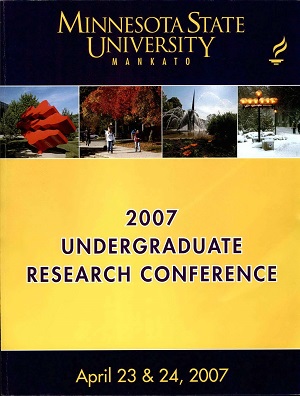Training and Learning Preferences of Older Workers
Location
CSU 253/4/5
Start Date
24-4-2007 10:30 AM
End Date
24-4-2007 12:30 PM
Student's Major
Psychology
Student's College
Social and Behavioral Sciences
Mentor's Name
Andrea Lassiter
Mentor's Department
Psychology
Mentor's College
Social and Behavioral Sciences
Description
Organizations are facing a growing problem of an impending workforce shortage which is expected to be caused by large numbers of retiring baby boomers. To deal with the situation, companies will need to find ways to retain and accommodate older workers. Considering this, researchers and practitioners need to better understand issues facing older adults in the workplace. The purpose of this research was to understand training issues facing older workers and their training preferences for workplace learning. Survey questionnaires were administered to employed adults over age 55. Survey items included an assessment of preferred learning styles, a training preferences inventory, and demographic information. Over 60 respondents completed these measures. Result will help organizations in terms of performance management and human resource processes. More specifically, by understanding what older workers prefer, organizations can design training programs that are best-suited for this population, which could increase retention for this segment of the workforce.
Training and Learning Preferences of Older Workers
CSU 253/4/5
Organizations are facing a growing problem of an impending workforce shortage which is expected to be caused by large numbers of retiring baby boomers. To deal with the situation, companies will need to find ways to retain and accommodate older workers. Considering this, researchers and practitioners need to better understand issues facing older adults in the workplace. The purpose of this research was to understand training issues facing older workers and their training preferences for workplace learning. Survey questionnaires were administered to employed adults over age 55. Survey items included an assessment of preferred learning styles, a training preferences inventory, and demographic information. Over 60 respondents completed these measures. Result will help organizations in terms of performance management and human resource processes. More specifically, by understanding what older workers prefer, organizations can design training programs that are best-suited for this population, which could increase retention for this segment of the workforce.
Recommended Citation
Fairchild, Katie. "Training and Learning Preferences of Older Workers." Undergraduate Research Symposium, Mankato, MN, April 24, 2007.
https://cornerstone.lib.mnsu.edu/urs/2007/poster-session-D/6




